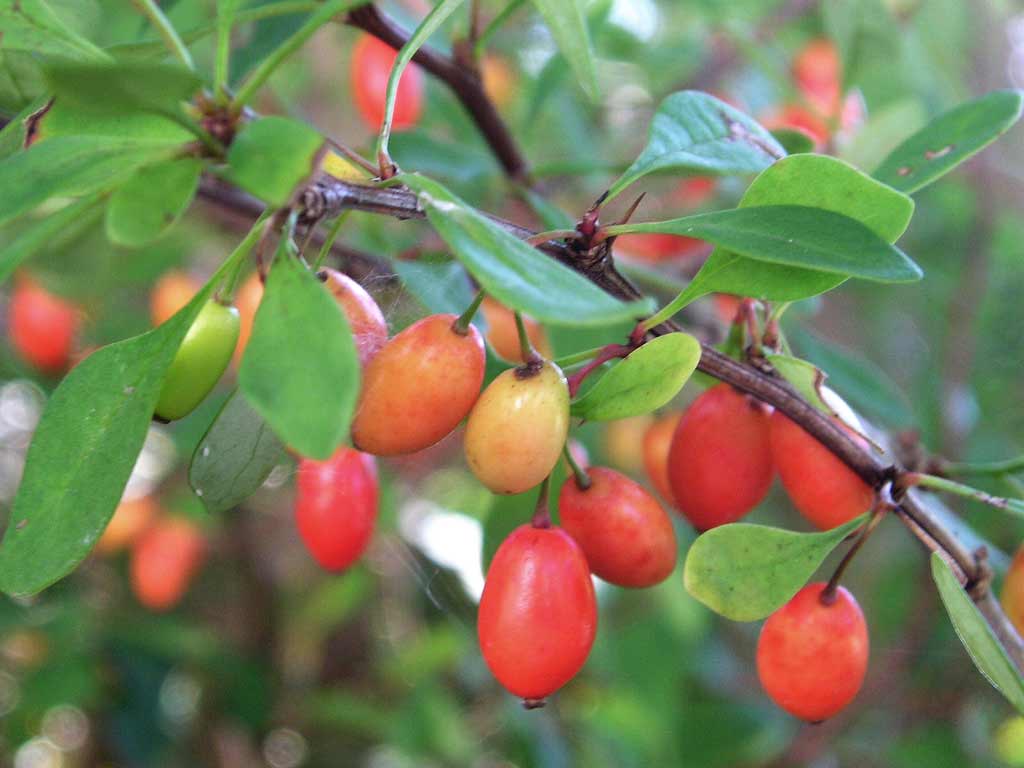I have an alert setup so that anytime a new study on PubMed mentions acne, I get a notification. Today the virtual mailman delivered a new anti-acne study to me.
Iranian researchers studied the effect of extract of dried fruit of Berberis vulgaris(barberry) on teenage acne patients. This was a really simple study. They took 49 12-17 year old teenagers with moderate to severe acne, and gave them a daily dose either 600mg of dried barberry extract or a placebo 4 weeks.
They showed about 45% reduction in acne in the barberry treated group, pretty impressive result.
But we should keep in mind that studies like this (the only study on the topic, not that many participants and unclear research methodology) tend to be positively biased. For several reasons, such as ideological bias of the researchers and positive studies are more likely to get published than ‘negative’ studies.
Dr. Mark Crislip at Science Based Medicine blog says he discounts these findings by 50% to get a ballpark estimate of the real world effectiveness. Note that he’s talking about this in the context of drug trials, but we can equally apply it to alternative and natural medicine studies.
Other studies have showed barberry can suppress inflammation, and it’s been historically used for rheumatic and other chronic inflammatory conditions. Given how acne is linked to systemic inflammation it’s plausible that barberry, or other antioxidant supplements, can help with acne.
So what to make of this? Well, not much from this study alone. But in the context of everything we know about acne and inflammation, it’s one more piece to strengthen the evidence.
Image by buttersweet @Flickr



Just wanted to say that I love these updates and the toggle references! Never anything I would regularly come across on the internet.
Glad to hear you like the posts. I do my best to try to put out useful information.
The main active component of Barberry is Berberine and this has been found to decrease HbA1c (a measure of how much glucose sticks to the haemoglobin) in diabetic patients to the same degree as metformin:
Jun Yin, Huili Xing, and Jianping Ye, 2008
Efficacy of Berberine in Patients with Type 2 Diabetes
Thanks for sharing that, Bob. I just checked the study and, assuming the results hold in other studies, barberry looks very promising. Quite amazing that it worked as well as metformin. I have to keep an eye on this.
I noticed that one of the claimed properties of Berberine an antibacterial action – have you found any evidence of whether it harms ‘good bacteria’ in the gut?
I did a quick check on PubMed on this. There are some preliminary animal studies that show berberine does indeed inhibit at least some gut bacteria.
For example, this study showed a significant reduction in diversity of gut microflora in high-fat fed rats. But it’s hard to say whether this is a good or bad thing. Generally high-fat fed rats have ‘poor’ microflora, which at least partially explains why they get fat and diabetic. This study also showed an increase in short chain fatty acids in the gut in rats given berberine. SCFAs are anti-inflammatory and likely ameliorate some gut problems.
This study also showed a reduction in good and bad bacteria in high-fat fed mice.
But another study on chickens showed increase good gut bacteria and overall positive effect on inflammatory markers in chickens given berberine.
I couldn’t find any human studies. So all and all, hard to say yet what, if any effect, berberine supplements would have on human gut microflora.
I found one paper with a theory on how Berberine might be beneficial for human gut microflora:
Med Sci Monit. 2011 Jul;17(7):RA164-7.
Modulating gut microbiota as an anti-diabetic mechanism of berberine.
Han J, Lin H, Huang W.
Basically they note that Berberine has significant antimicrobial activity against several microbes, and, as it is poorly absorbed in the gastrointestinal tract, it might be able to regulate gut microbiota without systemic anti-infective effects.
I think their idea is that, unlike many antibiotics which ‘nuke’ everything in the gastrointestinal tract, Berberine has an effective ‘but not explosive’ impact – helping to bring the gut microbiota into balance.
Seems to be just a theory at the moment though !
I also read that one. Didn’t mention it since it was pure speculation. The other studies I mentioned probably followed from the paper you mentioned. Seems like they tried to see if Berberine has an effect on gut bacteria and whether that could explain the positive effects seen.
It’s really hard to say how this relates to human gut bacteria. Our understanding of gut microbiota and its effect on health is still very limited.
Seppo,
You’ve done so much for the community of people dealing with acne. I was looking for acne-related information and came across this. I was curious. What’s in store for you and how this site will evolve in the future? I saw on another post that you were planning on making a kind of acne course.
Thanks for saying that. It means a lot. I do have a course on how to treat acne naturally. You can find it here: https://members.acneeinstein.com/clear-for-life/